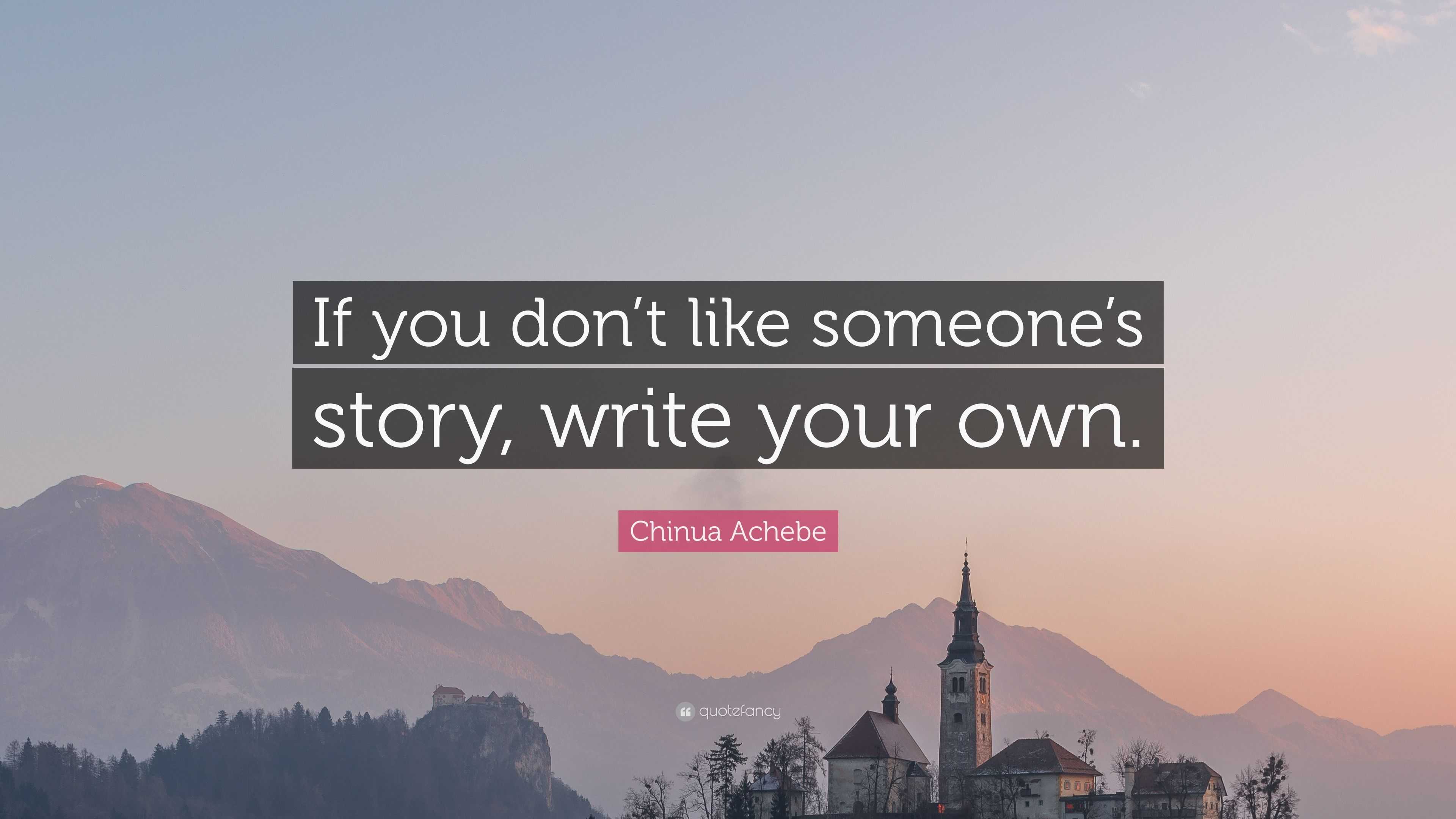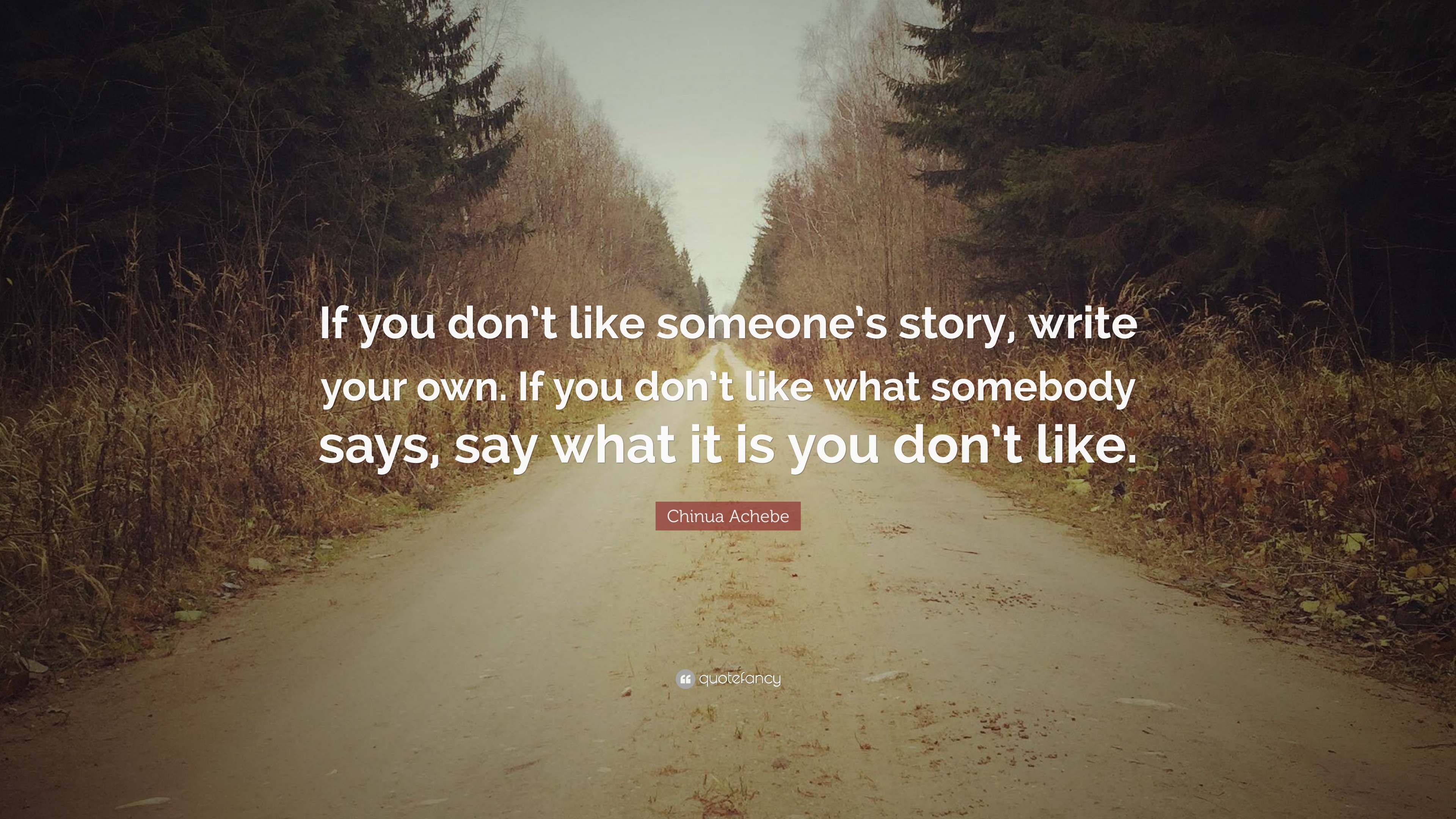
If You Don’t Like the Story, Write Your Own
When I was young and creative, I would become frustrated when others seemingly dictated how my story should be written. “You should change this,” or “that’s not how it actually happened.” Creative integrity, in my mind, was paramount. My passions flared, and the words flowed freely from my fingertips. I longed to share my unedited, raw emotions and experiences, without the limitations of external expectations. But the world didn’t always work that way, and I found myself in the confines of someone else’s narrative. It was suffocating, and I longed to break free and create a world of my own.
As I matured, I realized that everyone has a story to tell and that every perspective holds value. The world is a mosaic of experiences, and each piece is essential to the beauty of the whole. I learned to appreciate the art in listening and observing, in trying to understand the motivations and perspectives of others. But the fire within me still burned, yearning for an outlet to express my own, unadulterated thoughts and emotions.
Craft Your Own Narrative
In the realm of creativity, the pen holds immense power. It is a tool that empowers us to shape our own narratives, to craft worlds that reflect our unique perspectives and experiences. True freedom lies in the ability to tell our stories in our way, without the constraints of external expectations. Whether it’s through the written word, painting, music, or any other form of artistic expression, we have the power to create something that is uniquely our own.
In an age saturated with information and opinions, it’s more critical than ever to have a voice that is authentic and true. When we write our own stories, we take control of our narrative, refusing to be defined by the expectations of others. We become authors of our lives, shaping our experiences and crafting a destiny that is uniquely our own.
Embrace the Journey
The journey of writing your own story is not without its challenges. It requires courage to stand by your convictions, to explore uncharted territories, and to share your vulnerability with the world. But the rewards are immeasurable. When you create something that is authentically yours, you open yourself up to a sense of fulfillment and purpose that is unlike anything else.
In the words of Paulo Coehlo, “Your personal legend is waiting for you. And, I promise, I will be waiting too.” Trust in the power of your own voice, and don’t be afraid to tell your story, whether you’re writing a novel, singing a song, or simply sharing your experiences with the world. Your unique perspective and experiences are valuable, and the world needs to hear them.
Expert Advice
From years of experience as a blogger, I’ve learned a few essential tips that can help you on your journey as a storyteller:
- Be authentic: Write from the heart, sharing your true thoughts and emotions. Don’t try to be someone you’re not, and don’t be afraid to be vulnerable.
- Find your voice: Experiment with different writing styles and perspectives until you find one that feels natural and authentic. Your voice is what makes your writing unique.
- Practice regularly: Writing is like any other skill; it takes practice to improve. Set aside time each day to write, even if it’s just for a few minutes.
- Share your work: Once you’re confident in your writing, share it with others. Get feedback, and be open to constructive criticism. Sharing your work is an essential part of the writing process.
Remember, writing your own story is a journey, not a destination. There will be challenges along the way, but if you stay true to yourself and keep writing, you will eventually find your voice and share your unique perspective with the world.
FAQs
Q: Why is it important to write your own story?
A: Writing your own story is a powerful way to express yourself and connect with others. It can help you to heal, grow, and make a difference in the world.
Q: How can I find my voice as a writer?
A: Experiment with different writing styles and perspectives until you find one that feels natural and authentic. Write about topics that you’re passionate about, and don’t be afraid to share your own unique perspective.
Q: What are some tips for writing a good story?
A: Be authentic, find your voice, practice regularly, and share your work. Get feedback from others, and be open to constructive criticism.
Conclusion
The world needs your stories. Your unique perspective and experiences are valuable, and the world needs to hear them. Don’t be afraid to write your own story, in your own way. The world is waiting to hear from you.
Are you ready to write your story? Share your thoughts and experiences in the comments below.

Image: quotefancy.com

Image: newsroom-archive.pinterest.com
Hank Coleman on Instagram: ““If you don’t like someone’s story, write your own.” – Chinua Achebe” | Daily writing prompts, Liking someone, Writing Digital Download will be sent to your email